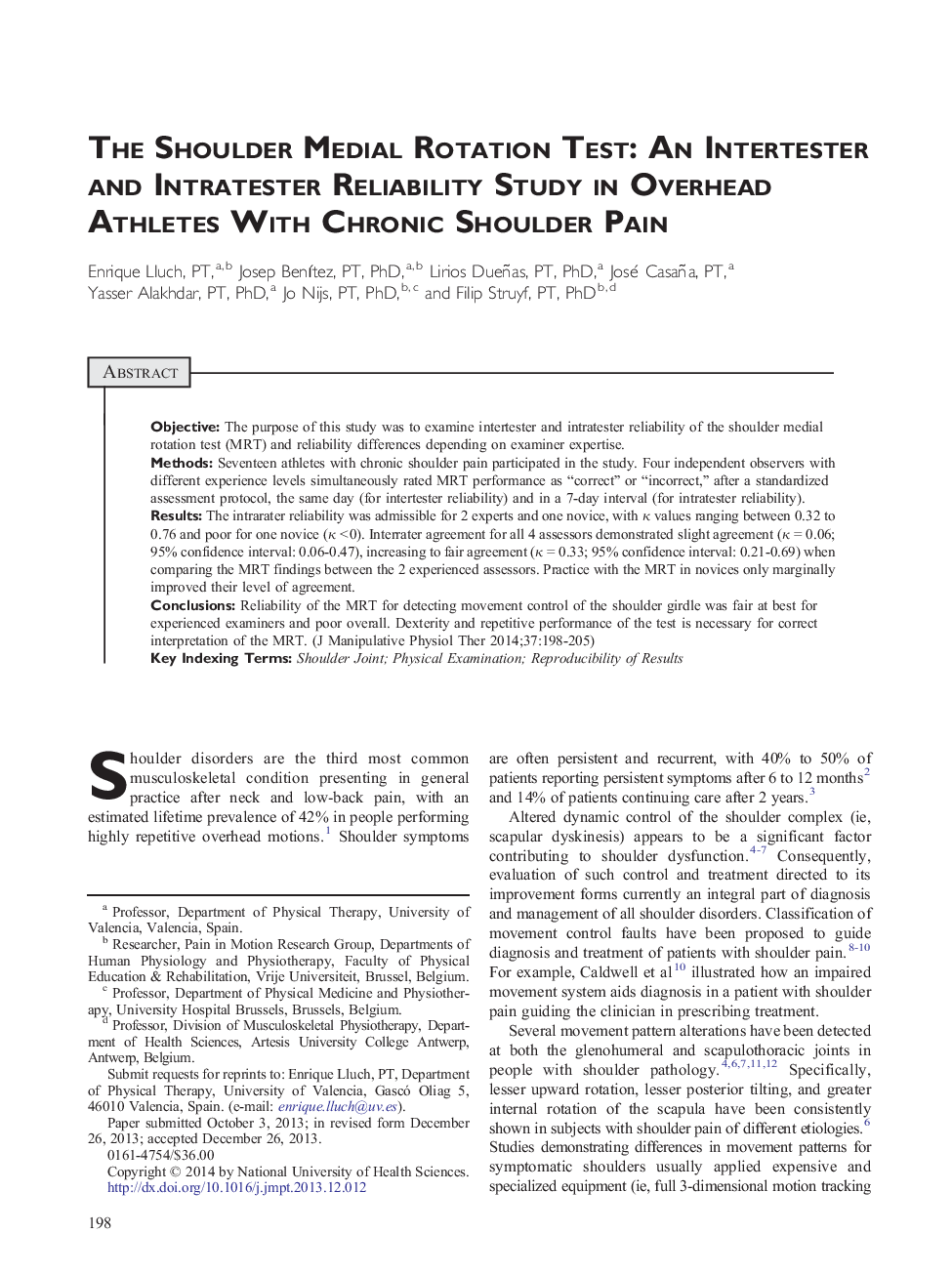| Article ID | Journal | Published Year | Pages | File Type |
|---|---|---|---|---|
| 5864019 | Journal of Manipulative and Physiological Therapeutics | 2014 | 8 Pages |
ObjectiveThe purpose of this study was to examine intertester and intratester reliability of the shoulder medial rotation test (MRT) and reliability differences depending on examiner expertise.MethodsSeventeen athletes with chronic shoulder pain participated in the study. Four independent observers with different experience levels simultaneously rated MRT performance as “correct” or “incorrect,” after a standardized assessment protocol, the same day (for intertester reliability) and in a 7-day interval (for intratester reliability).ResultsThe intrarater reliability was admissible for 2 experts and one novice, with κ values ranging between 0.32 to 0.76 and poor for one novice (κ < 0). Interrater agreement for all 4 assessors demonstrated slight agreement (κ = 0.06; 95% confidence interval: 0.06-0.47), increasing to fair agreement (κ = 0.33; 95% confidence interval: 0.21-0.69) when comparing the MRT findings between the 2 experienced assessors. Practice with the MRT in novices only marginally improved their level of agreement.ConclusionsReliability of the MRT for detecting movement control of the shoulder girdle was fair at best for experienced examiners and poor overall. Dexterity and repetitive performance of the test is necessary for correct interpretation of the MRT.
